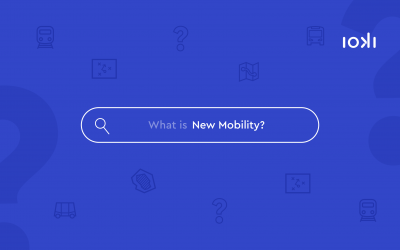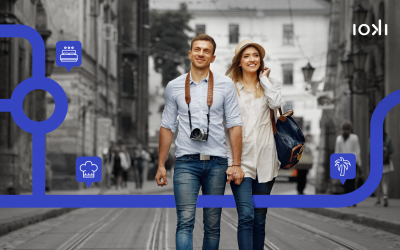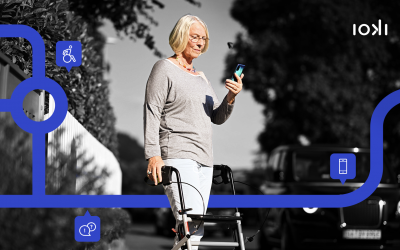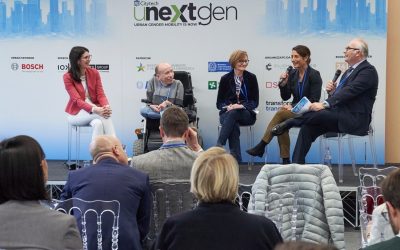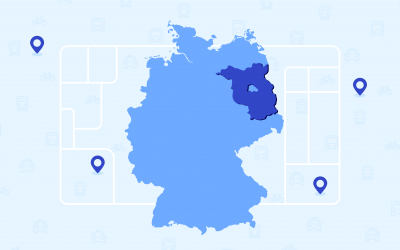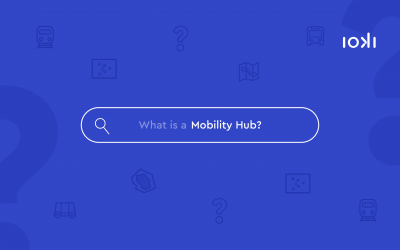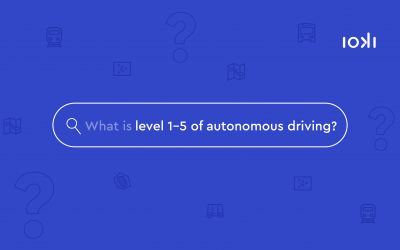What is… New Mobility?
«New Mobility» is often referred to as «smart mobility» and is a collective term for many innovations relating to technology and mobility. These new mobility services combine digitalisation with traditional mobility and use the advantages of the internet. New mobility services include bike sharing, demand-responsive transport, ride hailing and smart parking.
Off to new places: ioki creates first tourism mobility analysis
The focus of mobility analyses by ioki is the development of individual and customised recommendations. The result: integrated transport planning, a forward-looking mobility mix and optimised public transport services. What previously focussed mainly on everyday mobility has now been extended to include tourist mobility.
Transporte público adaptado a las personas mayores: ¿Cómo debe ser un transporte público adaptado a la edad?
La población europea envejece. En 2019, más de una quinta parte (20,3%) de la población de la UE-27 tenía al menos 65 años. Y la tendencia sigue en aumento. El cambio demográfico es un reto para el transporte público, pero también puede ser una oportunidad de crecimiento con una oferta de movilidad personalizada para las personas de mayor edad. Al fin y al cabo, si las personas de mayor edad ya no conducen, dependen cada vez más del transporte público para seguir participando activamente en la vida social.
ioki at Citytech UNextGen: How can cities become more liveable, safe and sustainable for everyone?
The Citytech UNextGen event in Milan has revolved around this question. The Head of Sales and Business Development at ioki, Laura Reupke, and our Sales and Business Development Manager Manuel Manzoni have attended the event and now look back to share some insights with us.
Mobility Turn now! Mobility of the future in Brandenburg
In this edition of the blog series «Mobility turn now!», we are focusing on the largest of Germany’s eastern federal states relating to area: Brandenburg. In addition to the Spreewald cucumbers and unspoilt nature, Brandenburg has a lot to offer in terms of new mobility and Smart Cities.
What is … a Mobility Hub?
Mobility Hubs, also known as Mobility stations, are publicly accessible locations where various modes of transport and sharing services converge. These can be S-Bahn (suburban train) and subway stations in an urban context, or even a bus stop in the countryside where rental bikes are available or important bus routes intersect. At these stations, people can easily switch from one mode of transport to another. Mobility hubs promote efficient and sustainable mobility by offering various mobility services, otherwise known as Mobility-as-a-Service (MaaS). The concept can be expanded from a simple bus stop to large Mobility Hubs, for example, with a combination of on-demand transport, car sharing stations, or e-scooters.
Ridepooling in Transport Planning
Demand-responsive transport based on the ridepooling concept is on everyone’s lips and has long been an important pillar of individual, public transport. Data-based transport planning is needed to realise the full potential of on-demand mobility. When transport companies want to start a new on-demand operation, they inevitably face the question of the right ridepooling design and the best balance between the costs and benefits of the flexible offer.
Mobility on holiday – first & last mile in tourist regions
Holidays without mobility are only possible on staycations, because no matter whether it’s a day trip, an annual holiday or a long-term trip: Travelling means being mobile. In order to achieve the climate protection goals and to advance the traffic turnaround, tourist traffic should also be critically examined, because Germans like to travel a lot.
Autonomous vehicles: turning point in European regional and local transport
Autonomous mobility is no longer a utopia; it is already reality and a key technology in today’s world. Worldwide, and especially in Europe, research and testing are being carried out on autonomous mobility – this holds great potential in terms of improving individual mobility thanks to increasingly efficient services while also providing a way of reducing private transport.
What is … level 1-5 of autonomous driving?
Autonomous driving has been considered one of the major trends in the mobility industry for years. According to a representative survey conducted by the digital association Bitkom in 2021, 99.8 percent of respondents can imagine using an autonomous means of transport*. But what does it actually mean when car manufacturers send the first systems for highly automated driving on the road at level 3 and level 4 autonomous shuttles reinforce public transport in Germany on demand from 2023 onwards?
Corporate Mobility in 2023: flexible solutions instead of classic company transport or company cars
For a long time, the company car was considered the non-plus-ultra and was often the only mobility offer employees could expect from their employer. In 2023, more flexible mobility solutions such as digital demand-responsive company transport, job bikes and mobility budgets are gaining ground. Rising energy prices, stricter environmental and climate protection regulations as well as greater sustainability awareness among employees are also contributing to the need for companies to rethink their corporate mobility management.
See and be seen – Joint event of ioki and Women in Mobility Frankfurt
Under the motto «See and be seen», the first joint #MoveUp event of Women in Mobility and ioki took place on Wednesday, February 8th, 2023. Around 50 participants, women and men, from the mobility industry in and around Frankfurt took the opportunity to exchange their experiences and views on the topic of visibility in a relaxed atmosphere.

